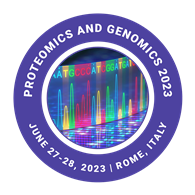Genome Projects and Genome Sequencing
Genome Projects: Genome projects are scientific endeavors that eventually point to decide the total genome arrangement of a life form (be it an creature, a plant, an organism, a bacterium, an archaean, a protist or a virus) and to explain protein-coding qualities and other vital genome-encoded features. The genome sequence of an organism includes the collective DNA sequences of each chromosome in the organism. For a bacterium containing a single chromosome, a genome project will aim to map the sequence of that chromosome. For the human species, whose genome includes 22 pairs of autosomes and 2 sex chromosomes, a complete genome sequence will involve 46 separate chromosome sequences.
Genome Sequencing: Genome sequencing (GS), also known as full genome sequencing, complete genome sequencing, or entire genome sequencing, is the method of determining the aggregate, or about the aggregate, of the DNA grouping of an organism's genome at a single time. This involves sequencing all of an organism's chromosomal DNA as well as DNA contained in the mitochondria and, for plants, within the chloroplast.
Genome sequencing has largely been utilized as a research tool, but was being introduced to clinics in 2014. In the future of personalized pharmaceutical, entire genome arrangement information may be an important instrument to direct helpful mediation. The instrument of quality sequencing at SNP level is also used to pinpoint functional variations from association studies and improve the knowledge accessible to analysts fascinated by evolutionary science, and thus may lay the establishment for anticipating disease susceptibility and drug response.
Related Conference of Genome Projects and Genome Sequencing
21th World Congress on Tissue Engineering Regenerative Medicine and Stem Cell Research
16th International Conference on Human Genetics and Genetic Diseases
19th International Conference on Genomics & Pharmacogenomics
Genome Projects and Genome Sequencing Conference Speakers
Recommended Sessions
- Biomarkers
- Cancer Epigenetics
- Cardiovascular Proteomics
- Clinical Genomics & Clinical Proteomics
- Computational Biology, Bioinformatics, and Biostatistics
- Computing in Biomedicine and Genomics
- E-Health, Telemedicine
- Genome Projects and Genome Sequencing
- Immunogenetics and Immunology
- Metabolomics and Metabonomics
- Metabolomics in Precision Medicine
- Modern Genetics
- Pharmacogenomics
- Protein Interactions in Biology
- Proteomics and Genomics
- Proteomics and its Medicinal Research
- Proteomics Technologies
- Signaling/Computational Biomedical Data Engineering
- Stem Cell Proteomics
- Toxicogenomics and Pharmacoproteomics
- Transcriptomics
Related Journals
Are you interested in
- 3D Bioprinting, Organ Fabrication & Bioartificial Tissues - Stem Cell 2026 (Netherlands)
- Aging Biology, Longevity Science & Cellular Rejuvenation - Stem Cell 2026 (Netherlands)
- Animal Genetics - Genome 2026 (Singapore)
- Artificial Intelligence and Computational Biology in Regenerative Medicine - Stemgen 2026 (Japan)
- Bioinformatics and Computational Biology - Genome 2026 (Singapore)
- Bioinformatics, AI Models & Predictive Regeneration - Stem Cell 2026 (Netherlands)
- Biomarkers and Microarrays - Genome 2026 (Singapore)
- Biomaterials and Nanotechnology in Regenerative Medicine - Stemgen 2026 (Japan)
- Cancer Genomics - Genome 2026 (Singapore)
- Cancer Stem Cells & Targeted Therapeutics - Stem Cell 2026 (Netherlands)
- Cancer Stem Cells and Oncology - Stemgen 2026 (Japan)
- Cardiac, Vascular & Musculoskeletal Regeneration - Stem Cell 2026 (Netherlands)
- Cardiovascular Regeneration - Stemgen 2026 (Japan)
- Clinical genomics - Genome 2026 (Singapore)
- Clinical Translation of Stem Cell Therapies - Stem Cell 2026 (Netherlands)
- Clinical Trials and Translational Stem Cell Research - Stemgen 2026 (Japan)
- Commercialization, Biobanking & Industry Innovations - Stem Cell 2026 (Netherlands)
- Comparative Genomics - Genome 2026 (Singapore)
- Epigenomics and Epigenetics - Genome 2026 (Singapore)
- Ethical, Legal, and Social Implications in Stem Cell Research - Stemgen 2026 (Japan)
- Ethical, Regulatory & Quality Control Frameworks - Stem Cell 2026 (Netherlands)
- Exosomes, Extracellular Vesicles & Cell-Free Therapeutics - Stem Cell 2026 (Netherlands)
- Functional Genomics - Genome 2026 (Singapore)
- Future Trends: Organoids, Bioengineering, and Next-Generation Therapies - Stemgen 2026 (Japan)
- Gene Editing and CRISPR Technologies - Stemgen 2026 (Japan)
- Gene Editing and Genetic Engineering - Genome 2026 (Singapore)
- Gene Editing, CRISPR Therapies & Regenerative Genomics - Stem Cell 2026 (Netherlands)
- Genetic Disorder - Genome 2026 (Singapore)
- Genomic Instability - Genome 2026 (Singapore)
- Genomic Medicine - Genome 2026 (Singapore)
- Induced Pluripotent Stem Cells (iPSCs) and Reprogramming - Stemgen 2026 (Japan)
- Mesenchymal Stem Cells (MSCs) in Therapy - Stemgen 2026 (Japan)
- Microbial Genomics - Genome 2026 (Singapore)
- Next generation sequencing - Genome 2026 (Singapore)
- Nutrigenomics - Genome 2026 (Singapore)
- Personalized and Regenerative Medicine - Genome 2026 (Singapore)
- Pharmacogenomics - Genome 2026 (Singapore)
- Plant Genomics and Molecular Pharming - Genome 2026 (Singapore)
- Regeneration in Neurodegenerative & Spinal Cord Disorders - Stem Cell 2026 (Netherlands)
- Regenerative Approaches in Diabetes & Metabolic Disorders - Stem Cell 2026 (Netherlands)
- Regenerative Dentistry and Craniofacial Applications - Stemgen 2026 (Japan)
- Regenerative Immunology & Immune Modulation - Stem Cell 2026 (Netherlands)
- Regenerative Medicine and Tissue Engineering - Stemgen 2026 (Japan)
- Stem Cell Banking and Cryopreservation - Stemgen 2026 (Japan)
- Stem Cell Biology and Cellular Mechanisms - Stemgen 2026 (Japan)
- Stem Cell Engineering & Cellular Reprogramming - Stem Cell 2026 (Netherlands)
- Stem Cells in Neurological and Neurodegenerative Disorders - Stemgen 2026 (Japan)
- Structural Genomics - Genome 2026 (Singapore)
- Tissue Engineering, Biomaterials & Smart Scaffolds - Stem Cell 2026 (Netherlands)
- Trends in Genomics and Pharmacogenomics - Genome 2026 (Singapore)

